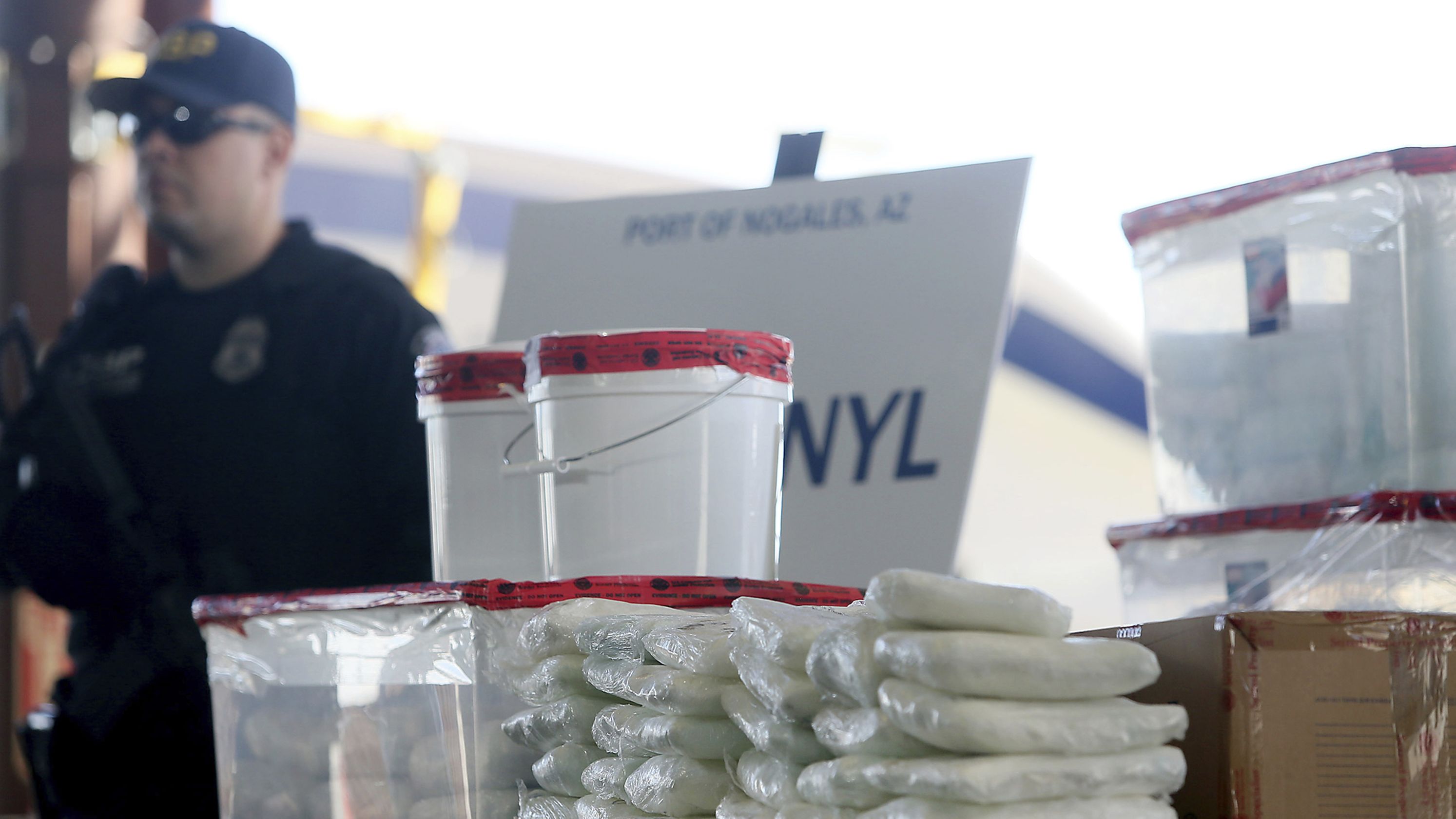
18 Mar Michigan has a Mexican-sourced drug epidemic
Michigan Attorney General Dana Nessel last month joined 15 other states in filing suit against President Donald Trump on account of his declaration of a national emergency to secure funds to build a wall at our southern border.
Clearly, Nessel should take a harder look at the costs Michigan residents already bear — especially in human capital — due to our unsecured Mexican border.
The majority of heroin, cocaine, marijuana, fentanyl and methamphetamine seized by the Drug Enforcement Administration’s Detroit Field Division originates from Mexico, according to DEA Public Information Officer, Special Agent Cheryl Davis, who states these drugs are “making their way to Michigan via plane, train, and car.”
When asked whether the porous Mexican border affects Michigan, Davis remarked that “Mexican drug cartels and opioid distributors still pose a great threat to Michigan communities and America at large.”
Overdose statistics show just how alarming that threat has become. In 1999, the Michigan Department of Health and Human Services recorded just 455 overdose deaths in the state. Over 18 years, the number has increased by nearly 500 percent, with the department finding 2,729 Michigan residents died of drug overdoses in 2017.
The figures are likely even more startling: the Centers for Disease Control believe the number of drug overdose deaths is underreported by about 8 percent, while researchers who assemble overdose statistics claim they “likely underestimated statewide overdose deaths by 25 percent.”
According to the Michigan Department of Health and Human Services, in 2017 the largest percentage of overdose deaths, 71 percent, or 1,941, were attributed to opioids. The percentage correlates with a nationwide spike in deaths related to the opioid fentanyl, a drug absorbable through the skin and 50 times more potent than heroin. The Wayne County Medical Examiner’soffice found that fentanyl was involved in 430 of the county’s 848 drug-related deaths in 2017.
Recently, drug networks with Mexican ties have been discovered inside Michigan. During a raid on a Novi condominium in 2017, DEA agents seized $500,000, 10 kilograms of fentanyl (enough to kill nearly 5 million people), and 88 pounds of heroin, worth $4 million on the street.
One of the individuals arrested is a native of Sinaloa, Mexico, the home of the infamous Sinaloa drug cartel, which has a history of operations in Detroit. Also arrested were a California native who, according to Assistant U.S. Attorney Andrea Hutting, appears to be “higher up in the chain and … fully entrenched in drug trafficking,” and a 21-year-old who has traveled to Mexico on six occasions since 2013, and whom Hutting believes traveled “to Detroit to oversee large-scale drug transactions.”
The 2017 seizure and arrests made little, if any, impact on the availability of deadly opioids in Michigan. In September 2018, the U.S. Attorney’s Office for the Eastern District of Michigan announced the creation of a “Strike Force” consisting of eight federal agencies and “26 state, local and Canadian law enforcement agencies” to combat “domestic cartels” and street gangs involved in the distribution of Mexican-sourced heroin and fentanyl in southeast Michigan.
Nessel calls the emergency at the border “manufactured,” but the data and incidents above are not. Neither is a 2018 WalletHub report, relying on 20 metrics, which identified Michigan as having “the fourth-worst drug problems of the fifty U.S. states and the District of Columbia.”
Though Michigan is in crisis, Nessel has firmly applied her blinders while dragging out tired lines that most D.C. Democrats have already discarded.
In a January interview with Fox and Friends, John P. Walters, the Chief Operating Officer of the Hudson Institute and the former Director of the White House Office of National Drug Control Policy, explained that the proposed border wall will enhance our ability to stop drugs.
A wall will reduce the time Border Patrol agents spend “on guard duty between the ports of entry,” and enable Border Patrol agents to focus efforts on “sort[ing] the bad things – the drugs, the crime” at our legal points of entry.
In America, “200 people are dying a day of overdoses” Walters stated. “That’s kind of horrifying that our national leaders are just dismissing the massive amounts of death here.”
Nessel is among those dismissive leaders. Her decision to ignore the drug crisis that ravages families within her state in order to be oppositional to the president is to the extreme detriment of the Michiganians she was elected to serve.
Beth Bailey is a freelance writer from the Detroit area.
Read or Share this story: https://www.detroitnews.com/story/opinion/2019/03/17/opinion-michigan-has-mexican-sourced-drug-epidemic/3165863002/
[ad_2]
Source link



No Comments